All Stories
-
 Space
SpaceAwesome! Here are the James Webb Space Telescope’s first pictures
The first image shows ancient galaxies. Some reveal light that has been traveling 13 billion years to reach us.
-
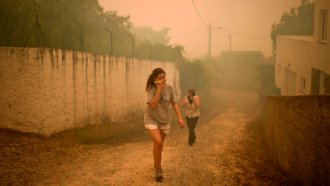 Health & Medicine
Health & MedicineWildfire smoke seems to pose its biggest health risk to kids
New studies, some of them in young monkeys, point to vulnerabilities affecting kids' airways, brains and immune systems.
By Megan Sever -
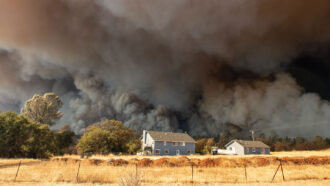 Environment
EnvironmentWestern wildfire smoke poses health risks from coast to coast
As wildfires become more common, their hazardous smoke is sending East Coast residents — especially children — to emergency rooms.
By Megan Sever -
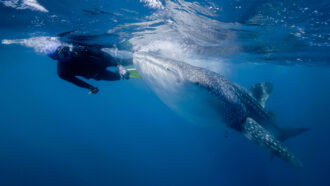 Animals
AnimalsWhale sharks may be the world’s largest omnivores
Chemical clues in the sharks’ skin show that the animals eat and digest algae.
By Freda Kreier -
 Tech
TechEngineers put a dead spider to work — as a robot
Scientists literally reanimated the dead. It’s a new research field called “necrobotics.”
By Asa Stahl -
 Animals
AnimalsWhen bees are away, moths come out to pollinate
Camera footage reveals that moths make roughly a third of the visits to red clover, working under the cover of night.
By Jake Buehler -
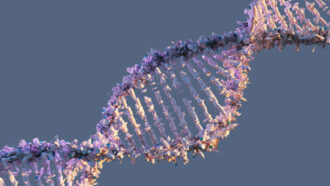 Genetics
GeneticsScientists Say: DNA
Short for deoxyribonucleic acid, DNA is the molecule that determines how each living thing looks and works.
-
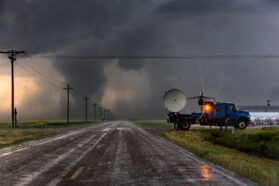 Physics
PhysicsExplainer: How the Doppler effect shapes waves in motion
The Doppler effect describes how waves are compressed or stretched when their source — or receiver — is moving.
By Trisha Muro -
 Life
LifeYour face is mighty mite-y. And that’s a good thing
Tiny face mites live in our pores, getting food and shelter in return for eating our skin waste. A new study shows they can’t live without us.
-
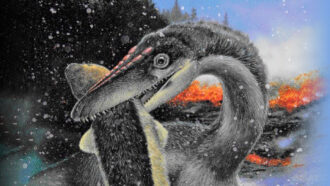 Fossils
FossilsWarm feathers may have helped dinos survive mass Triassic die-off
Dinosaurs may have weathered freezing conditions about 202 million years ago, thanks to warm feathery coats.
-
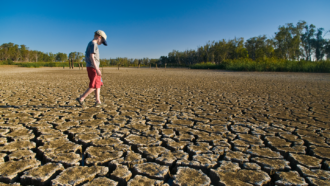 Climate
ClimateLet’s learn about heat waves
Heat waves often occur when a high-pressure system lingers over a certain area. These deadly events are on the rise due to climate change.
-
 Psychology
PsychologyScientists Say: Trauma
No one experiences trauma the same way. Its effects can be physical or emotional. Immediate or delayed. Brief or long-lasting.